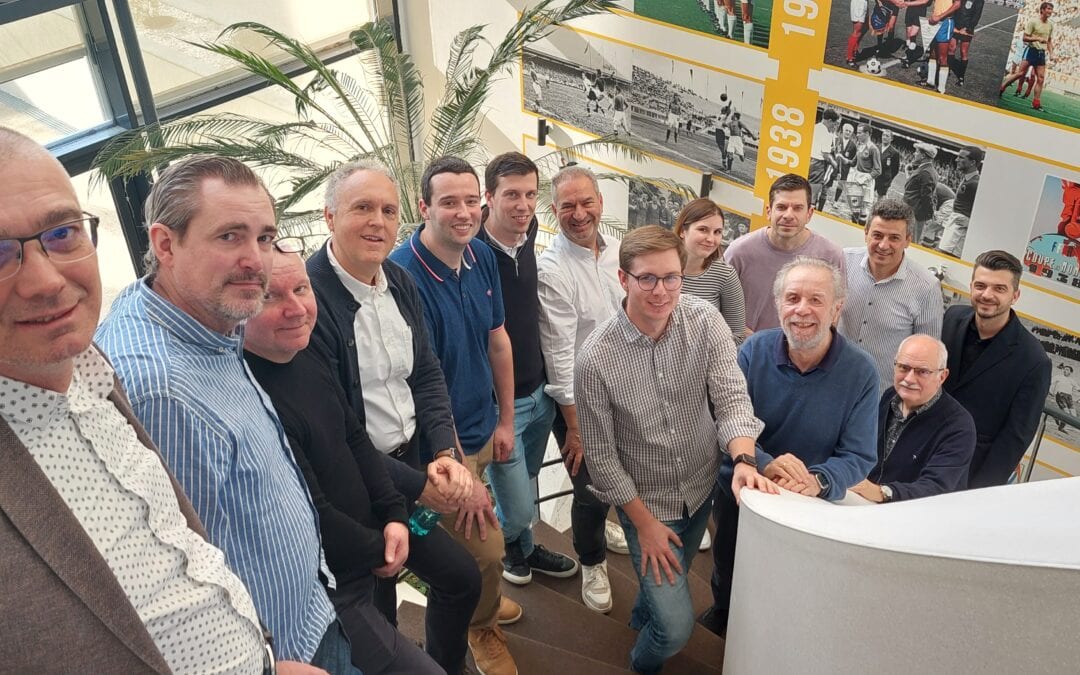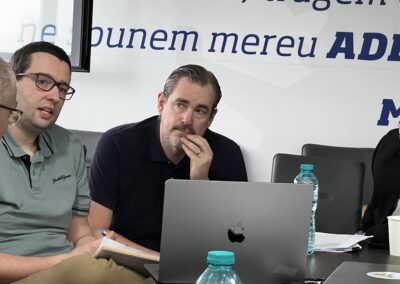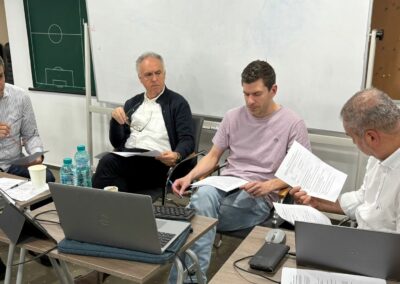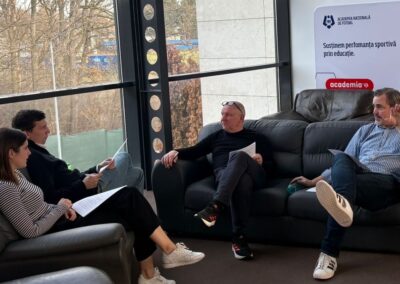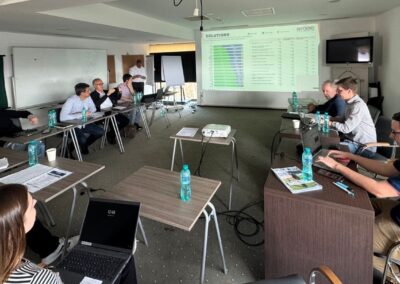Research over many years shows that sport employers struggle to recruit and retain skilled staff, and this is holding back the much-needed professionalisation of the sector. EOSE’s IN-FORMS project (12 partners in 10 countries, co-funded by the EU’s Erasmus+ Sport programme) has the ambitious goal of addressing sport employment challenges through new forms of employment emerging in other sectors, such as employee sharing, intermittent permanent employment and remote working. Despite their possible benefits, these new approaches also come with risks for employers and employees who will need guidance on best practices.
The survey
But first the partners need evidence – a detailed picture of the very real and practical problems faced by sport employers and how new forms of employment could deal with these.
Working from a strong foundation of desk research and with the active support of many EOSE members outside the partnership, on 25th November 2024 IN-FORMS launched a major online multilingual survey (available in 19 languages) of sport organisations across the continent.
First findings revealed in Bucharest
When the partners met for their 3rd meeting on 30-31 January 2025 brilliantly hosted by the Romanian Football Federation at its Mogoșoaia National Football Centre on the outskirts of Bucharest, they were delighted to learn that over 2 200 responses had been received with wide coverage across Europe and strong representation from sport clubs, federations and municipalities.
The survey will remain open until later in February and much more data cleaning and analysis will be done, but the first ‘headline’ findings are revealing. A few ‘teasers’ include:
- 86% of the sport organisations felt that they could improve their services if they were able to recruit and retain more paid staff, BUT 68% had recently experienced problems with staff recruitment and 85% agreed retention is a significant challenge.
- 81% agreed that a lot of work in sport is precarious, and sport needs to find ways to make employment more stable.
- 72% of sport organisations with retention difficulties highlighted particular challenges with retaining younger staff who tend to leave sport in their late 20s and early 30s.
- The most difficult staff to recruit and retain were sport coaches and middle managers.
The most frequently mentioned reasons for recruitment and retention challenges were:
- Uncompetitive salaries and benefits compared to other sectors.
- Working hours not being a good fit for the lifestyle of staff.
- Better career development opportunities elsewhere – particularly significant in the case of younger workers.
- Better offers such as full-time contracts by other types of employers.
There were also some important findings regarding skills development. 84% felt that the rapid development of the sport sector means staff need new skills, and 82% agreed that the sector could recruit and retain more staff if there were more opportunities to develop skills throughout their careers.
Particularly important for IN-FORMS is the fact that 76% of respondents felt the sport sector would welcome new ways of employing staff and 61% agreed that sport organisations need more guidance on recruitment and retention.
The survey also provided evidence that a small but significant sample of sport organisations are already testing new forms of employment. The most frequently mentioned new forms were:
- Remote work
- Portfolio work
- Intermittent permanent employment
- Job sharing
- Employee sharing
In addition to presenting the full range of European findings (which are far greater than the examples above), EOSE’s Projects and Research Coordinator, Wojciech Waśniewski, also provided comparative breakdowns for each of the 10 partner countries which stimulated much lively debate.
In the final part of the meeting, the IN-FORMS partners focused their attention on planning a series of 50 follow-up interviews with survey respondents already involved in new forms of employment. This will give the project more qualitative information about motivations, barriers, risks and best practices.
Now wait for the final results!
When the interviews are complete, IN-FORMS will create a full European Research Report on sport employment challenges with an evaluation of how new forms of employment could address these. This will be published in June 2025.
The conclusions and recommendations will then be shared via 10 national consultation roundtable meetings and one European online event which will lead to the final outputs: policy papers for stakeholders and decision makers and practical guidance and support to employers and employees on how to use new forms of employment to deal with employment challenges. These will be developed and published by the consortium in 2026.
Geoff Carroll, EOSE’s Director of Skills Development, was delighted with the meeting in Bucharest:
EOSE has been aware for many years that the sport labour market has some unique features which make the transition to a paid and professional workforce very difficult. Yet, having a stable and highly skilled workforce is absolutely vital if European sport is going to achieve its objectives in public health, social development and economic growth.
The commitment and synergy shown by the IN-FORMS partners throughout the project and especially at the meeting in Bucharest has been brilliant! The consortium has delivered some highly detailed desk research, and this new survey of sport organisations will prepare the ground for some highly relevant, evidence-based recommendations and best practice guidelines which will be relevant to decision-makers, employers and employees at European and national levels. I am optimistic that in future years IN-FORMS will make a significant contribution to solving some of the most crucial employment challenges which the sport sector faces.
IN-FORMS Partnership
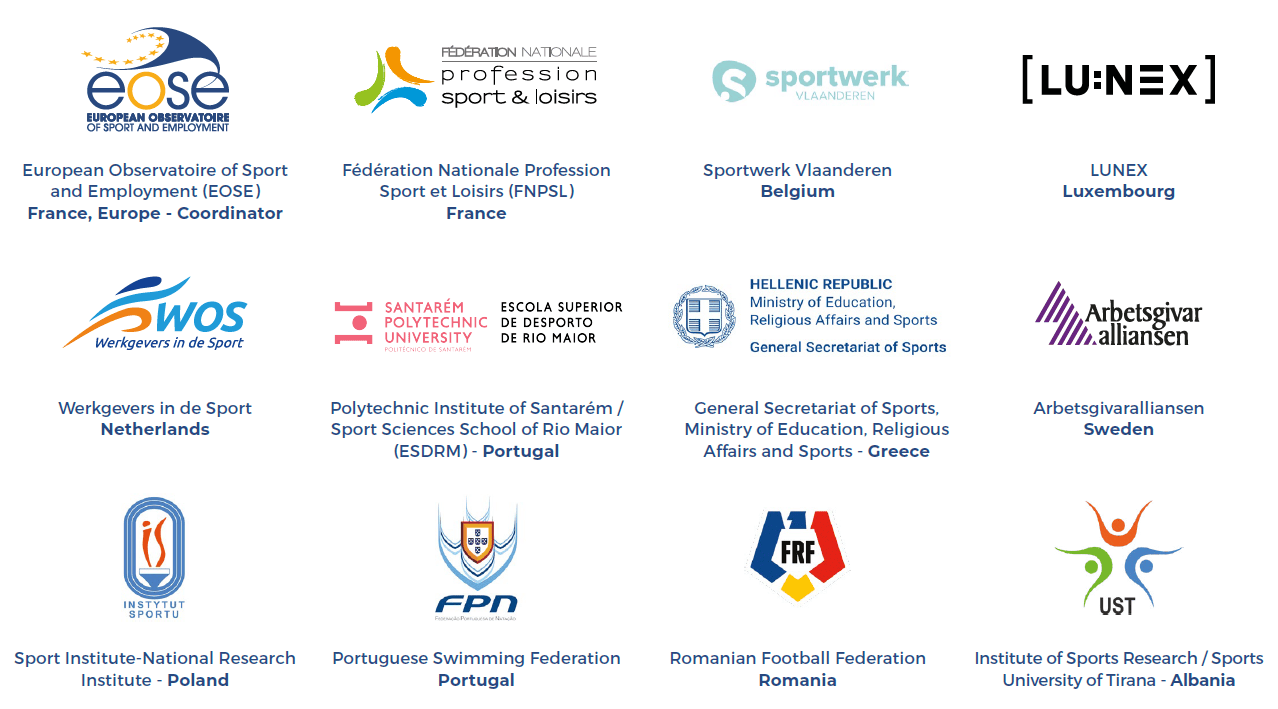
Contact
Mr Geoff Carroll – EOSE Director of Skills Development – Click here
Mr Wojciech Waśniewski – EOSE Projects & Research Coordinator – Click here
Mr Aurélien Favre – EOSE Executive Director – Click here
